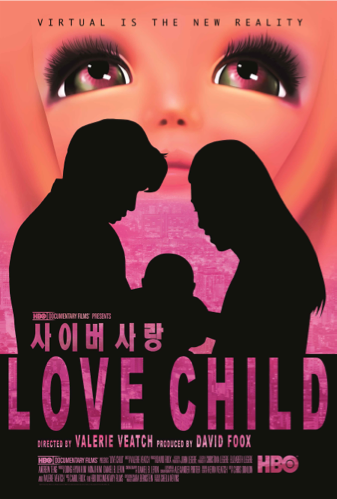A Documentary on Game Addiction Tragedy Fails to Press the Right Buttons


Last night HBO premiered Love Child, a documentary about a couple in South Korea who let their newborn child die of starvation in 2010 while they played online video games for hours on end in a PC café. The documentary gets its title from the name of the newborn—Sarang, which means "love" in Korean.
The documentary describes the couple's game-centric life and interviews the attorney who defended them, a worker at the game café they frequented, and the journalist who covered the tragedy and legal case for the Western media, among others.
The documentary is an odd duck in that it strives to avoid some well-worn media pitfalls that result in fear-mongering in the reporting of video game "addiction," yet its approach doesn't seem to delve into any sort of science or research, other than a look inside a Korean company that provides what seems like specious aversion therapy to gamers. Instead the film superficially drifts over the nature of South Korea's extremely high-tech, game-centric culture, pulling at little strings of ideas here and there without accomplishing much.
It's frustrating to watch as the documentary descends into babble about whether people who play a lot of games or spend a lot of time interacting through the Internet differentiate between the real world and a virtual world. This discussion seems to typically originate as fact-free musing from people about gamers rather than from the gamers themselves. Do people know they aren't actually ones and zeroes? The chin-stroking takes a turn for the absurd when the documentary lets forth the suggestion that Sarang's parents didn't quite understand that babies need food to live because of all the time they spend in video games (the game in question, a now-defunct online role-playing game called Prius, involved taking care of a child-like assistant amid the adventures, and her existence is played up as much as possible to contrast with Sarang's neglect). Their defense attorney is partly responsible for pushing the "they didn't know how" narrative, so it makes sense for him to try to make the argument, but the documentary lets the nearly incomprehensible assertion just lie there all the way until the nearly the end, when somebody finally points out that people generally know that other people need food to live without special training.
In fact, the documentary reinforces the idea of gamer parents ignorant of the logistics of actual life by describing the communal nature of Korean society and suggesting the parents didn't have good relationships with their own parents (the family members themselves, though, are not interviewed for the documentary). South Korea's response to video game or Internet addiction has been government regulation—passing curfews to prohibit teenagers from playing video games after a certain time, reinforcing the idea that the problem is communal, not individual. Though there is a voice in the documentary stating that the problem isn't lack of regulation, his words become the segue to the exploration of the aversion therapy clinic. It's the equivalent of using drug addiction to promote drug courts. It doesn't really help illuminate anything.
The documentary floats over the basics of Korean culture like a travelogue on some lower tier cable channel without delving deeply enough to allow the viewer to understand what is really going on. Perhaps nobody really did, thus the long pauses for canned footage with ugly, multi-colored filters playing over junior college-level musings over the nature of the real world versus virtual reality. The documentary brings up the fact that the father was unemployed and was attempting to make money as a "gold farmer" in games. These are people who grind the drudgery of earning the online currency of games and then turn around and sell it for real money to other players so they can save time and purchase in-game goods without having to go through all the effort. But then this economic component of the couple's troubles is ignored. Why couldn't he find work? Was he unemployable because he was playing video games all the time, or was the order reversed? Did he end up playing video games because he couldn't find a job within Korea's information society?
Love Child clearly wants to make the viewer feel as though game addiction did ultimately cause Sarang's death. But the documentary doesn't want to appear to engage in fear-mongering, and yet it doesn't really do the hard work to make a valid case. The evidence remains circumstantial. A bunch of television news talking heads are shown referencing "Internet addiction," but given the media's reputation for mangling the results of scientific studies, it's not clear what we're supposed to take away from these invocations. It looks almost like Love Child wants it both ways—to engage in Internet addiction fear-mongering but in a fashion that appears sober and reflective and therefore not subject to the same criticism.
It's a shame, because it's not as though these isolated incidences aren't worth deeper analysis. I've seen lives destroyed by obsessions with gaming just as I have with drugs. But there's nothing actually useful about Love Child. It nibbles around the edges of a messy situation, afraid to get its hands truly dirty, perhaps out of fear of undercutting its own debate over the real vs. the virtual.


Show Comments (39)